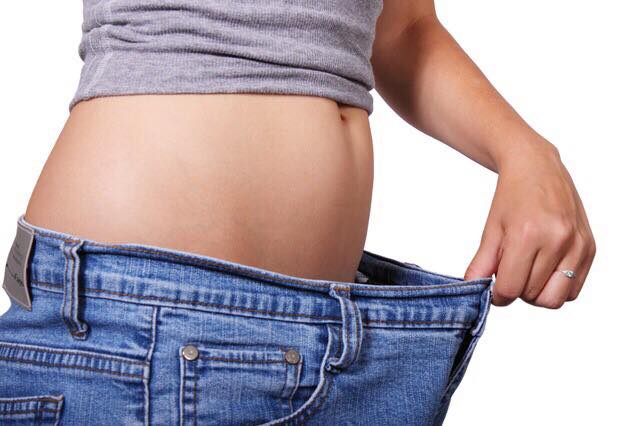Are you one of the many fighting the battle towards achieving weight loss? The success of weight loss can be said to simply coming down to expending more energy than you take in. Exercise and diet are two major players which influence the amount of energy you use and take in. To lose weight you need to eat less or exercise more or a combination of the two. A third contributing factor which may impact your ability to lose weight may be the types of bacteria which live in your gut.
Your gut microbiome plays many important roles in your body. The types and amounts of microbes which live in your gut influence your immune system function, organ health including your brain and ability to metabolise food. This means that when you eat a meal, the macronutrients or carbohydrates, fats, and proteins, are absorbed in your gut differently depending on the types and amounts of microbes which live within your gut. In addition to this your gut microbiome influences the inflammatory state of your body which is a component linked to chronic diseases and obesity.
New research provides insight to the potential impact that different types of microbes which live in your gut have in inhibiting or enhancing your ability to lose weight. A new study investigated the effects of a low energy diet on the gut microbiome. 211 overweight, pre diabetic adults followed low energy diet made up completely of meal replacements for 8 weeks duration. Low energy diets using meal replacements provide between 800 1200 calories a day.
After the 8 weeks following a low energy diet the researchers found that the gut microbes had significantly changes. There was an increase in the diversity and number of microbes. This included more of the types of microbes know to support metabolic function such as Christensenellaceae and Akkermansia genera. Also, a decrease in potentially more pathogenic species including Bifidobacteriu, flagellated Pseudobutyrivibrio, and acetogenic Blautia. Interestingly, butyrate production reduced. This short chain fatty acid is often linked to health benefits and this finding provides an interesting finding which increases the complexity of the gut microbiome.
Overall, these changes in the gut microbiome of the adults were linked to a significant reduction in weight. The researchers concluded that approximately 25% of the differences in the body fat loss between individuals pre and post low energy diet were determined by the individual gut microbiome at baseline.
It is important to note that this research is still in its infancy. However, these findings support the need to investigate the link between successful weight loss and your gut microbiota further. In the future your gut microbiota may be assessed, and advice tailored to support weight loss supporting microbes.
Your diet is a major contributor to the types of microbes which live in your gut. The main fuel source of health promoting microbes comes from prebiotic fibre and polyphenols found in plant-based foods. This includes foods like wholegrains, nuts, seeds, legumes and beans, fruits, and vegetables. Each microbe has different preferred fuel sources which is why including a variety of different plant-based foods each week is recommended. Aiming for 30 different plant-based foods each week is a smart lifestyle habit to include to promote a healthy gut microbiome.
Dietary fibre plays an important role in gut health and function. An adult needs between 25-38 grams of dietary fibre daily. This can be achieved by including plant-based foods in each meal and snack you eat. Also, including one or two meat free meals a week, swapping a meat protein for a plant-based protein. This could mean swapping a steak for beans or grilled tofu.
Take home message: If you are not looking after the health of your gut microbiome you are doing yourself a huge disservice. To add to the many reasons to live a lifestyle which promotes an optimal gut microbiome is potentially its role in promoting weight loss.
References:
- Roager, H., & Christensen, L. (2022). Personal diet–microbiota interactions and weight loss. Proceedings of the Nutrition Society, 1-12. doi:10.1017/S0029665122000805
- Jian, C., Silvestre, M.P., Middleton, D. et al. Gut microbiota predicts body fat change following a low-energy diet: a PREVIEW intervention study. Genome Med 14, 54 (2022). https://doi.org/10.1186/s13073-022-01053-7
- Zhou W, Sailani MR, Contrepois K, Zhou Y, Ahadi S, Leopold SR, et al. Longitudinal multi-omics of host-microbe dynamics in prediabetes. Nature. 2019;569:663–71. https://doi.org/10.1038/s41586-019-1236-x.
- Maruvada P, Leone V, Kaplan LM, Chang EB. The Human Microbiome and Obesity: Moving beyond Associations. Cell Host Microbe. 2017;22:589–99. https://doi.org/10.1016/j.chom.2017.10.005.
- Hughes RL, Kable ME, Marco M, Keim NL. The role of the gut microbiome in predicting response to diet and the development of precision nutrition models. Part II: Results. Adv Nutr. 2019;10:979–98. https://doi.org/10.1093/advances/nmz049.








